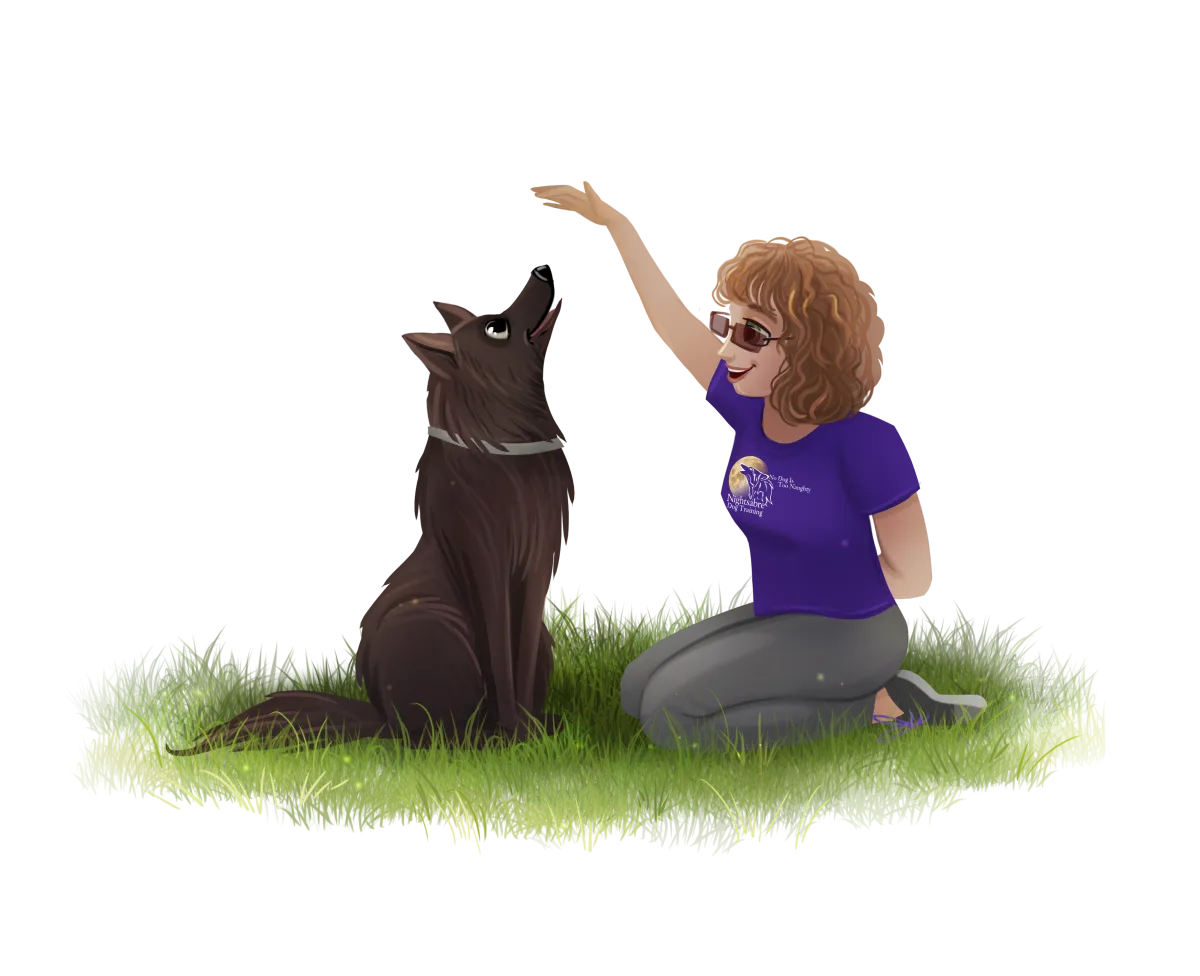The Fastest Way to Train a Dog: Positive Reinforcement Techniques for Success
Discover the fastest way to train your dog using positive reinforcement, with tips for obedience training stubborn breeds and using marker words effectively.
07888 870151

Discover the fastest way to train your dog using positive reinforcement, with tips for obedience training stubborn breeds and using marker words effectively.

“It is easier to build strong puppies than to repair broken dogs.” — Adapted from Frederick Douglass
Bringing a new puppy into your home is one of life’s great joys. There’s nothing quite like the heart-melting puppy scent, those tiny silky soft paws, wagging tails, and the occasional mischievous grin that says, “What shoe?” But along with all that cuteness comes a lot of responsibility. That’s why choosing the right dog trainer for you and your puppy is so important. There are probably a plethora of dog trainers to choose from in your area, from the experienced to the newly qualified. So, which trainer should you choose?

"Building confidence with every step! Socialisation is about helping your puppy navigate the world, one wobble at a time."
Socialisation is a bit of a buzzword in the dog training world, but do you really know what it means? Many people think it’s all about letting your puppy meet as many dogs and people as possible. Sure, those interactions are important, but there’s so much more to socialisation than just a few friendly sniffs and endless playtime at the local park.
An experienced dog trainer knows that socialisation goes beyond just letting your puppy greet everyone or play with every dog in sight. It’s about teaching your puppy how to behave in different environments—whether that’s a bustling street, a quiet café, or even the vet’s office. It’s not just about playdates; it’s about helping your puppy grow into a confident, well-mannered adult dog. The key is getting the balance right between allowing interactions with people and dogs, and introducing them to new experiences in a way that builds their confidence without overwhelming them. This delicate balance is a skill that requires experience.
Puppies are little bundles of emotions, and they can swing from ecstatic joy to nervous uncertainty faster than you can say “squirrel.” Training isn’t just about teaching commands; it’s about understanding what’s going on inside that furry little head.
An experienced trainer doesn’t just see a puppy that’s barking or chewing—they see the underlying emotions driving those behaviours. Maybe your pup is anxious, excited, or just plain bored. An experienced trainer knows how to read these cues and tailor the training to address the root cause, not just the symptom. This approach builds a stronger bond between you and your puppy, based on trust and understanding.
An inexperienced trainer, however, might miss these subtleties and try to correct behaviours without addressing the emotions behind them. This can lead to more frustration for both you and your pup. With the right trainer, you’ll learn how to respond to your puppy’s needs in a way that supports their emotional well-being.

Obedience training sounds serious, but it doesn’t have to be. In fact, the best training sessions are the ones where your puppy has so much fun they don’t even realise they’re learning. It’s like hiding vegetables in a toddler’s spaghetti—effective, but sneaky.
An experienced trainer knows how to strike the perfect balance between obedience and play. They’ll turn training into a game, making it something your puppy looks forward to. This not only helps your puppy learn commands but also keeps them engaged and happy. After all, a bored puppy is a naughty puppy.
On the flip side, an inexperienced trainer might focus too much on obedience without making it enjoyable. While your puppy might learn to sit on command, they might also start dreading training sessions. The goal is to make sure learning is something your puppy enjoys, not just endures.
One of the biggest perks of working with an experienced dog trainer is their knack for nipping potential problems in the bud before they become, well, big problems. Puppies, as adorable as they are, can quickly pick up some not-so-adorable habits if they aren’t guided in the right direction from the get-go.
An experienced trainer has seen it all—they know the little quirks and behaviours that can turn into bigger issues down the road. They understand how puppies develop and can tweak the training to fit your pup’s unique personality. This proactive approach is like having a crystal ball for puppy behaviour, helping to prevent issues like aggression, anxiety, or other mischief that’s much easier to avoid than to fix later on.
On the flip side, an inexperienced trainer might miss those subtle warning signs, and before you know it, that cute little quirk has turned into a full-blown habit. It’s much easier (and more fun) to steer your puppy in the right direction from the start than to try to reverse bad behaviours later.

Just like humans, puppies have their fears and insecurities. Maybe it’s the vacuum cleaner, the postman, or that mysterious plastic bag blowing in the wind. Whatever the trigger, it’s important to help your puppy face their fears in a way that builds confidence and resilience.
An experienced trainer knows how to introduce your puppy to potentially scary situations gradually and positively. They’ll help your puppy learn that the world isn’t such a scary place after all. This builds a confident dog who can handle whatever life throws at them—whether it’s a trip to the vet or a surprise thunderstorm.
An inexperienced trainer, on the other hand, might try to push your puppy too quickly, which can lead to increased fear and anxiety. The key is to build confidence slowly and steadily, ensuring that your puppy feels safe and secure at every step of the way.
Every breed has its quirks—those little habits that make your pup both lovable and, occasionally, a bit of a handful. Whether it’s a Beagle’s unstoppable nose, a Border Collie’s mission to herd anything that moves, or a Belgian Shepherd’s commitment to guarding everything in sight, these traits are part of what makes each dog so special. But let’s be honest, they can also keep you on your toes if not managed properly.
An experienced trainer gets it—they know these breed-specific traits inside and out. Rather than fighting against your puppy’s natural instincts, they’ll work with them, turning potential challenges into strengths. This way, training becomes more effective, and your puppy feels understood and valued for who they are—a win-win!
On the other hand, an inexperienced trainer might try the same approach with every dog, without taking into account what makes your pup unique. This can lead to frustration on both ends—you’re pulling your hair out, and your pup is just confused. Choosing a trainer who understands your puppy’s specific needs can make all the difference, setting the stage for a training experience that’s successful and, most importantly, enjoyable for both of you.
Now that we’ve covered why choosing an experienced dog trainer is so important, let’s dive into what actually makes a trainer “experienced.”
It’s not just about the number of years spent around dogs (though that helps!); it’s about the time spent learning, honing skills, and staying current with the latest in dog behaviour science. For instance, my own journey started back in the 90s, shadowing seasoned trainers and soaking up everything I could. Over the years, I’ve earned a diploma in companion animal behaviour and training from COAPE, become a member of CABTI, and clocked over 27 years of hands-on experience. But I didn’t stop there—I’m always updating my knowledge through seminars, workshops, and courses to ensure I’m bringing the best possible methods to every training session.
When you’re looking for a trainer, you want someone with a similar blend of qualifications and real-world experience. It’s that combination of practical know-how and up-to-date knowledge that equips an experienced trainer to handle just about any situation with your pup.
Ready to give your puppy the best start? Whether you have questions or want to chat about your puppy’s needs, feel free to give me a call at 07888 870151. Or, if you’re all set and eager to get started, you can book your place in my next puppy course by visiting this link. Let’s get your puppy off to the right paw together!

Fun | Focus | Play® by Nightsabre Dog Training
Natasja Lewis DipCAPBT | 07888 870151 | [email protected]
Nightsabre Dog Training © 2023/2024/2025 . Privacy Policy